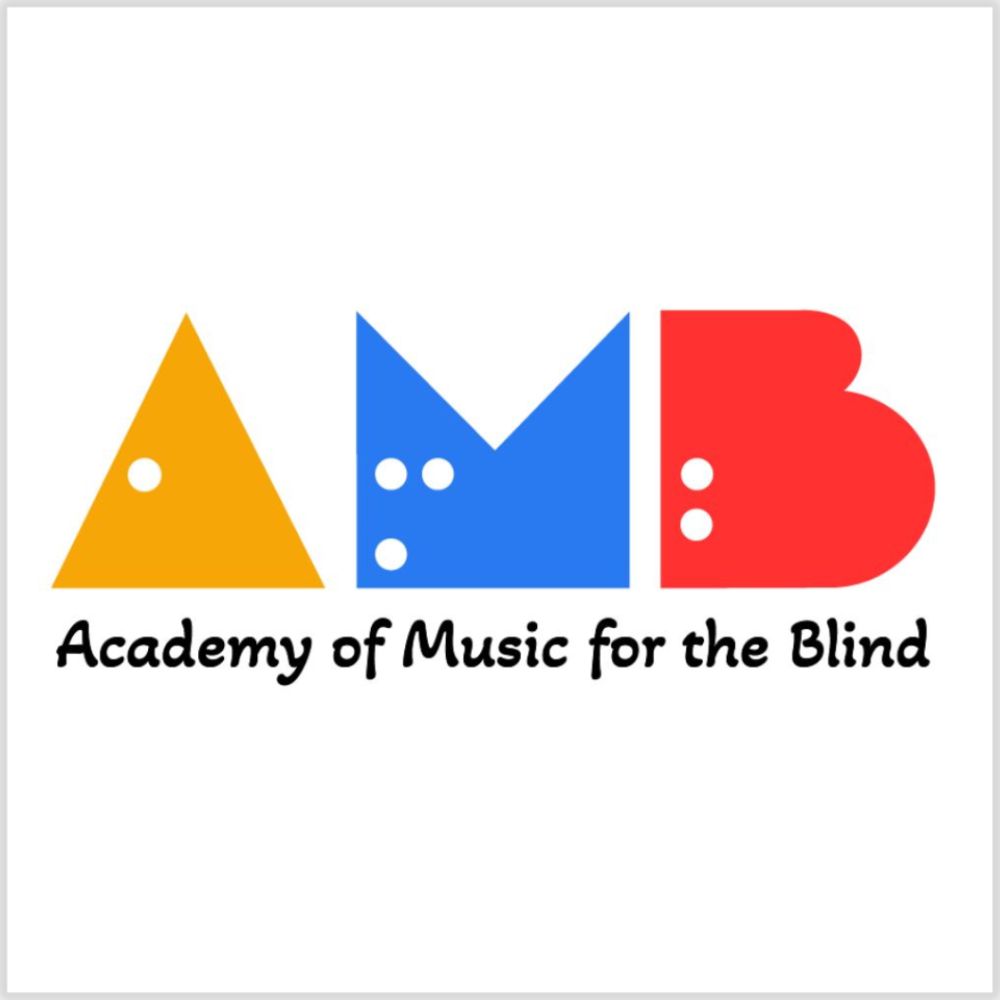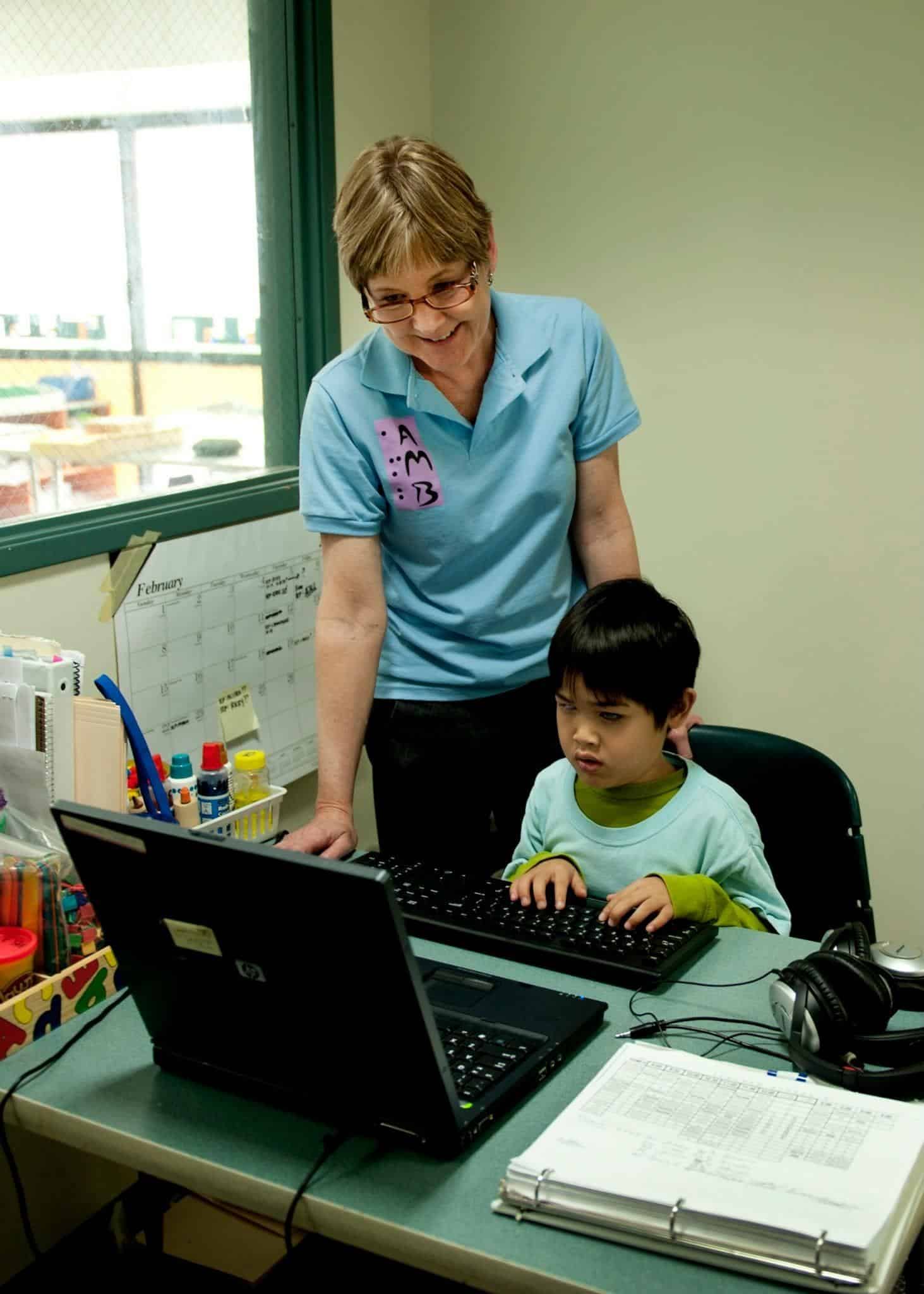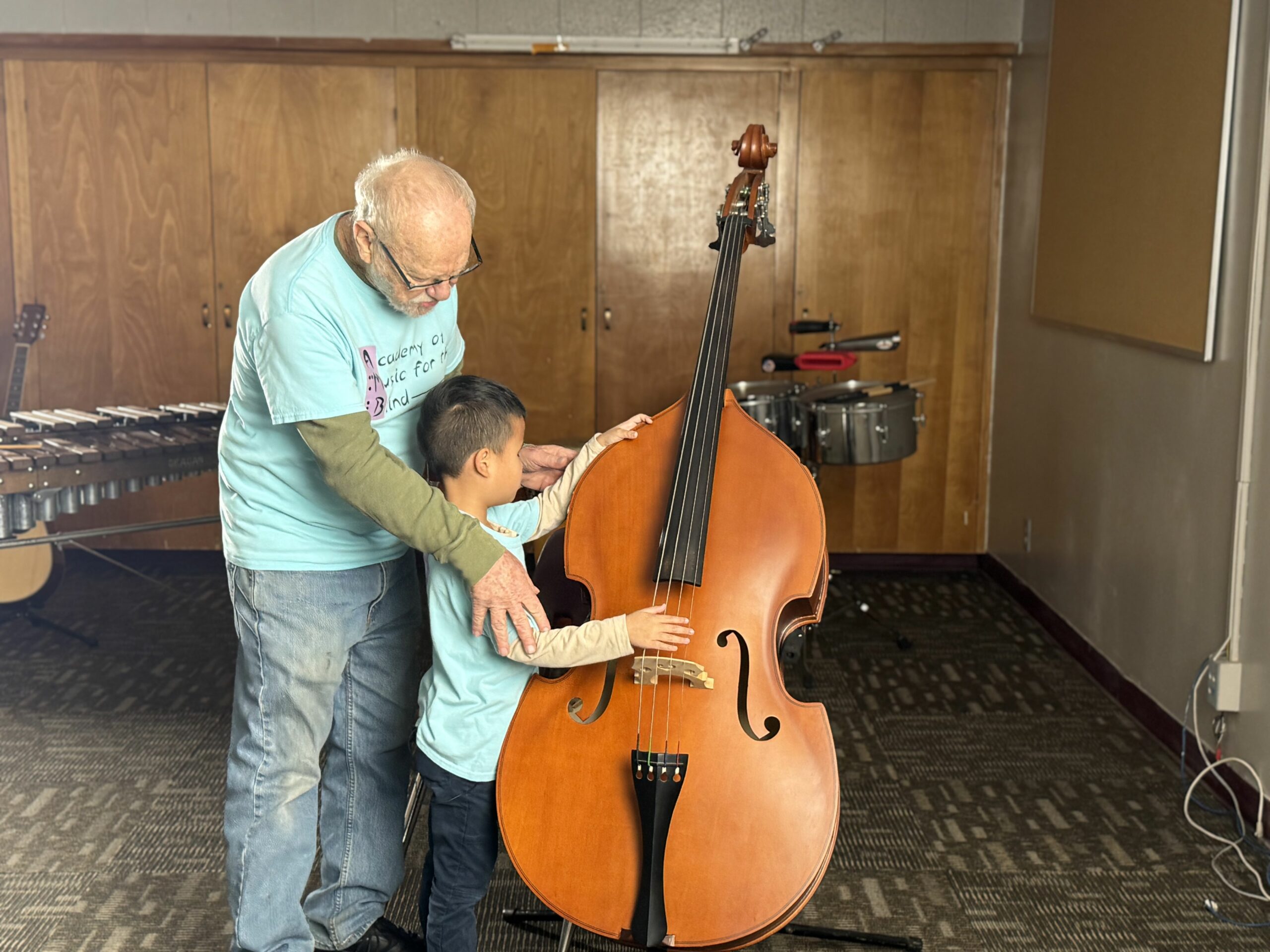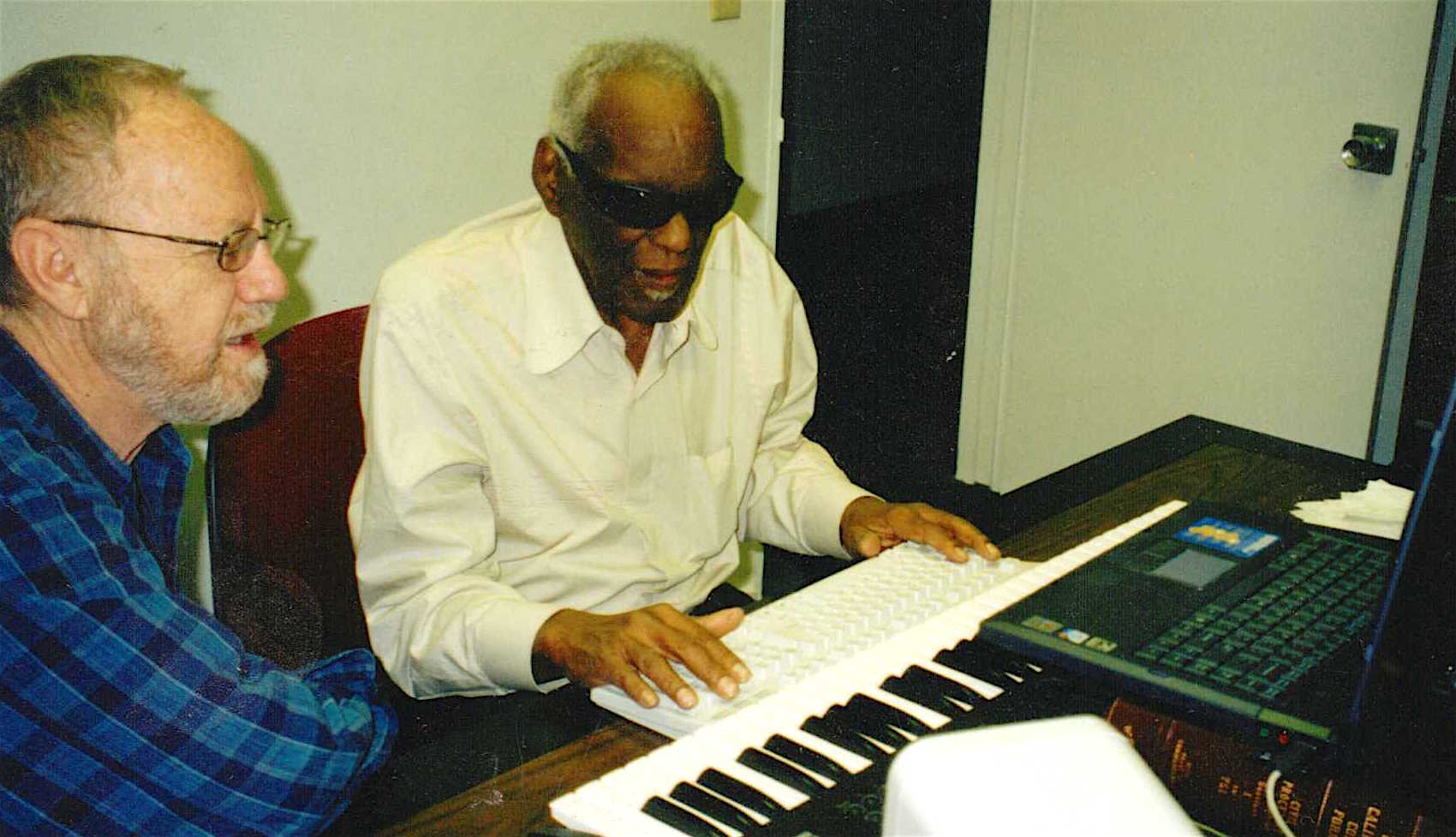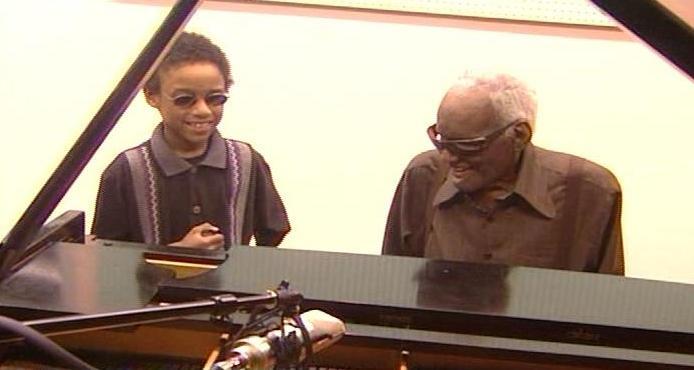AMB is dedicated to providing a comprehensive music and performing arts education to all talented blind students regardless of their economic status.
Especially for blind children, the skills they learn in order to gain literacy in music can form the foundation for most of their future academic achievements.
The higher levels of instruction provide a major contribution to leveling the playing field for blind college students and working musicians.
The music curriculum includes the following classes:
- Training in acoustic instruments: piano, guitar, winds, percussion & voice.
- Braille music reading, ear training & solfege.
- Arranging and recording taught both traditionally and with the aid of accessible computer recording applications.
- Computer Literacy including training in using screen reading software.
- Recording & audio engineering.
- Movement, Mobility & Dance.
- Public Speaking & Drama.
- Creativity & Imagination Development.
- Community Inclusion.
- Social & Living Skills.
- Academic Tutoring to assist students in their current school studies.
In addition to AMB’s Saturday program, the following invaluable resources and support are provided:
- An intern program to train selected students to be assistants and to administrate in the classrooms.
- Monthly meetings with counselor to evaluate student’s needs, problems and concerns.
- Parent advocacy workshops. Educating parents and families on how they can advocate for their children vis-a-vis the public school system, state rehab organizations, and regional centers.
- Teacher training workshops. These workshops are designed to educate professional teachers in the special needs of blind students. The information and skills provided will enable teachers to successfully integrate blind music students into existing music classes.
- Interchange with sighted peers during field trips, special performance opportunities, and specifically integrated classes.
AMB can recommend AMB teachers for private classes during the week. Weekday classes are now online via Zoom.
This service is invaluable for students who wish to gain even greater progress in their studies and prospective students who are not yet ready for the level of training offered during the Saturday program.
Public schools offer credit to visually impaired high school students who study music, dance, and drama at AMB.
Most visually impaired students are woefully underserved by their school district’s Arts Education Program.
Fortunately, because of “No Child Left Behind,” Common Core Standards, and related STEAM standards, public schools acknowledge that they cannot sufficiently address the special needs of their visually impaired students in arts education.
To address this challenge, schools are now offering credit to their visually impaired high school students who study music, dance, and drama at AMB.
Visually impaired students already face challenges in keeping up with the normal academic load. In fact, even though a student might have no other impairment other than their visual impairment, their enrollment in high school sometimes has to be extended an additional year in order to allow them time to complete requirements for graduation.
With high school credit for Arts Education at AMB, the students obtain all the benefits of arts education that their sighted peers gain, concurrently increasing their chances of meeting graduation requirements in a timely manner.
Because of the many benefits of Arts Education, the government’s STEM standards (Science, Technology, Engineering and Math) have been expanded to incorporate the Arts: STEAM (Science, Technology, Engineering, Arts and Math).
Extensive research has demonstrated that arts education:
Engages students in learning.
Contributes to higher test scores in every subject area.
Reduces truancy and dropout rates.
Helps prepare students for the expectations of the twenty-first century workforce, which include the ability to innovate, communicate and collaborate.
Unfortunately, even though Arts education in dance, music, and theater is mandated in the State Education Code, this code does not mandate schools to follow these content standards, which leaves the implementation of arts education to the discretion of each school district.
While privately funded high quality arts programs have been maintained in wealthier school districts, a child’s access to arts education should not be predicated by where they happen to live. In addition, most school districts are beyond their depth when trying to integrate their visually impaired students into whatever art programs they do have available. That’s where AMB is providing an invaluable service to school districts.
Our graduating students are already making their mark in film/video audio editing, professional music performing, and theatre. The sky is the limit for most children, and AMB is proud to be working hand-in-hand with school districts in preparing our students for the twenty-first century workforce.
CONVERSATION WITH RAY CHARLES
The founding of AMB was a project dear to Ray Charles’ heart. The following is an excerpt from a discussion David Pinto had with Ray about his thoughts on computers, literacy, and education.
9/28/2003
David:
A lot of kids who are growing up with computers are questioning why they should have to learn to read, write, add and multiply, when their computer can do it for them.
Ray:
Well, you know, I have a bunch of computers around here, and I use them. And, now with the software that you created, I can write my music charts myself, rather than dictating every single note to my arrangers.
But there’s basics in your life that you need to be able to fall back on. To me, a computer is just something to help you. It’s not a replacement. It’s just a great addition. People have forgotten that you’ve got to crawl before you can walk. The kids need to know how to add and multiply, to read and write. They need to know, “Why is nine and nine, eighteen?” They need to know, when the word “to,” is spelled “to”, or “too”, or “two”.
Everybody should have a basic education that they can always fall back on. Because, what do you do if your computer is down? What do you do when the knobs don’t turn, and the buttons wont push? What do you do when you got all your eggs in that one basket? What then?
David:
But, especially for blind kids, what do you say to them to give them the incentive to study literary Braille, and to learn how to read Braille music? They’re wondering, “Why should I work so hard when the computer can do it all for me?”
Ray:
Well, if you’ve got a book, you don’t have to have electricity to run it. That book is not going to crash. It’s going to be there forever. And, what if you want to learn a piece of music that’s not in your computer?
If you know how to read Braille, you don’t need that computer. People need to be able to fall back on what they carry in their head. But, if there’s nothing in their head, except for what the computer put there, well, what then? Listen. All you need is your mind, and your fingers or eyes. Remember, YOU! have the brains. You don’t have to go out and buy some brains. You’ve got a brain that’s already installed…SO USE IT!
